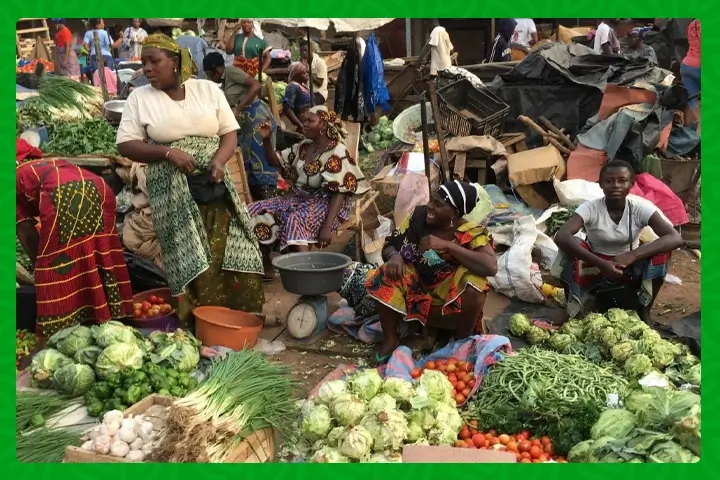
In a resolute stance to safeguard its food security and tackle production shortfalls, the Ivorian government has announced a six-month ban on the export of key food products, effective from January 15, 2024. This crucial decision, jointly communicated by the Ministry of Agriculture, Rural Development and Food Production, the Ministry of Finance and Budget, and the Ministry of Trade and Industry, aims to ensure a consistent supply of food to the local market.
A Comprehensive Ban to Strengthen Local Markets
The suspension encompasses approximately twenty vital agricultural products and their derivatives, spanning cereals (corn, rice, millet, sorghum, and fonio), tubers (cassava and yam), as well as fruits and vegetables (plantain and peppers). This comprehensive measure follows a previous ban on rice and sugar exports between September and December 2023, demonstrating the government’s commitment to combatting the high cost of living and maintaining stability in the national market.
Agriculture at the Heart of Ivorian Economy
Côte d’Ivoire heavily relies on its agricultural sector, contributing about 16.7% to the country’s GDP. While cashew nuts, cocoa, and rubber are significant export crops, the agricultural sector plays a pivotal role in ensuring food security for the population. The recent export suspension is a proactive response to potential challenges, given the ongoing hosting of the 34th edition of the African Cup of Nations (CAN), which attracts an influx of visitors and is expected to increase food consumption, especially in urban areas.
Balancing Supply and Demand Dynamics
With concerns arising from production shortfalls and speculation contributing to potential imbalances, the government’s decision to halt food exports is a strategic move to avoid exacerbating challenges and maintain stability in domestic food markets. The authorities are keenly aware of the need to balance supply and demand dynamics, particularly during high-profile events like the African Cup of Nations.
Opposition’s Concerns and Government’s Response
The opposition, represented by the Parti Democratique de Côte d’Ivoire (PDCI), has voiced concerns about the country’s diminishing food production surpluses. Soumaila Bredoumy, the PDCI spokesman, highlighted challenges in sectors like sugar, where deficits and competitiveness issues are impacting the livelihoods of thousands. The government’s decision to suspend food exports underscores the urgency of addressing these challenges to ensure food security for the population.
Monitoring Effectiveness for the Future
As the government takes these bold measures, the effectiveness of the ban will be closely monitored over the next six months. The focus is on strengthening the domestic supply chain, boosting local markets, and ensuring that the Ivorian population has consistent access to essential food products. This strategic move showcases the government’s commitment to the well-being of its citizens and the resilience of the Ivorian economy in the face of challenges. The world will be watching as Ivory Coast navigates this critical period, aiming to emerge stronger and more self-reliant in its food production capabilities.


















